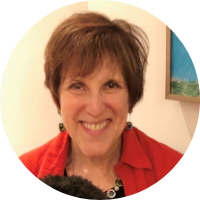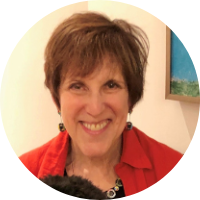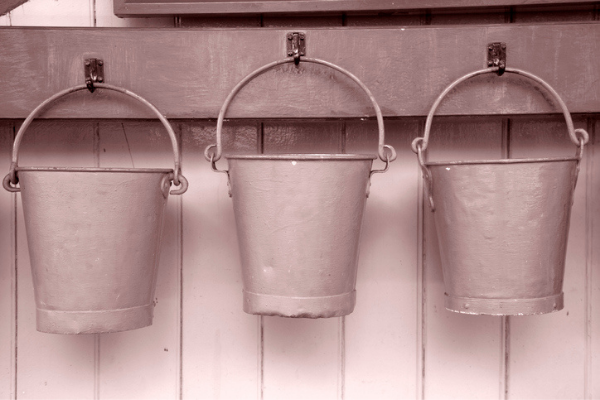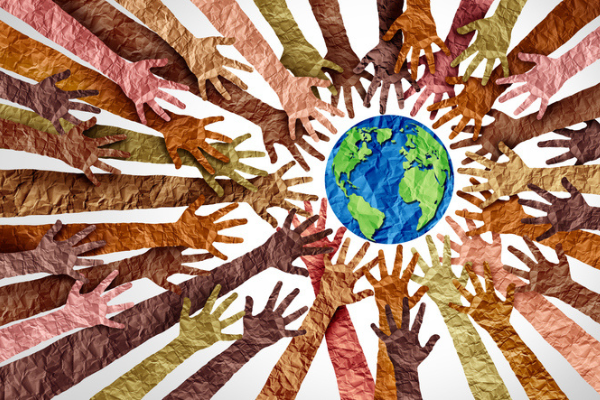
Did you choose retirement? Or was it chosen for you?
I made the decision to retire, because my beloved husband Joe had been diagnosed with mild cognitive issues that were only going to get worse. He was 22 years older than me, a talented artist, and we had been married for more than 40 years. My job as Executive Director and CEO of the American Chemical Society was exceptionally demanding, involving long hours and lots of travel. I felt that it was only fair to my husband and to ACS to retire, even though I loved my job. It was absolutely the right decision, because a year after I retired, my husband suffered a series of strokes and died. I was so happy that I had that year with him—we were able to travel and be together all the time. And when he had the three successive strokes over 11 weeks, I was there for him.
How was the transition from the working world to retirement?
Once I made the decision to retire, I began envisioning what the next chapter of my life would look like. I had a year from the time I announced my retirement until my successor was in place, so I had time to really make that transition in a thoughtful way. I knew I wanted to do consulting and volunteer work at ACS, and work as a member of the Board of Trustees of the George Washington University and some other nonprofit boards. I also knew I wanted to spend more time with Joe. It all worked out as envisioned, except that he was supposed to be part of my long-term retirement plans. He died at age 91 ½ and we had been together for nearly 46 years.
Looking back, what do you wish you knew about retirement before you retired?
When you are working full time in a demanding job, as I did for nearly 50 years, you measure your days by how productive you are. What did you produce? What did you create? In my new life, I had to find a way to measure the success of my days. It took me nearly five years to realize that I did not need to have a “productive” day, I needed to have a “fulfilling” day. I’m a problem solver, and I continued to do that in retirement. But I found that at the end of the day, I wanted to know whether I felt fulfilled: Did I make someone happy? Did I help someone who needed help? Did I stay in touch with friends and family? Did I experience joy and gratitude? Productivity and fulfillment are two very different states! I have to confess that I love having a fulfilling day.
What do you enjoy most about being retired?
Being the master of my own day and calendar! And walking my standard poodle Beau, whom I bought as a puppy after my husband died. I love structuring my day around Beau’s walks and needs, and filling in the time in between as I wish, not as someone else wants me to. I’ve met so many of my neighbors walking my dog. I also exercise every morning with a personal trainer in my home, and I was able to lose a lot of the weight I gained as CEO of ACS! I’m definitely cooking more and eating better food.
How do you stay connected to the chemistry enterprise as a retiree?
As soon as I retired, I was appointed chair of the Committee on Minority Affairs and a member of the Pension & Investments Committee. I also serve on the ACS Audit Committee, and I’ve worked to raise money for Project SEED and ACS Scholars. I made it a point to go to ACS meetings and to be there the full week, to see friends, participate in symposia, and be part of my ACS family. COVID-19 put a damper on the meetings, but not on my ACS activities. I made a lot of really good friends during the 24 years I worked at ACS and I’m still in touch with many of them.
What do you like most about where you are living in retirement? What’s one thing you wish you could change about where you live?
I love my home, where I’ve lived for 49 years as the original owner. It’s 21 miles outside Washington, D.C., on a wooded lot, with lots of wildlife and a protected park where houses can never be built. It is filled with my husband’s art and 44 years of happy memories living there with him. I only wish I could also have a beach right in my back yard!
What advice do you have for people who are getting ready to retire?
Be sure you are ready from a financial planning viewpoint, and definitely envision what you want this next chapter to look like and make it happen. No one can do this for you!

Madeleine Jacobs was Executive Director and CEO of the American Chemical Society for more than 11 years, from January 2004 to February 2015. Jacobs served 10 years as Managing Editor (1993-95) and Editor-in-Chief (1995-2003) of Chemical and Engineering News (C&EN), where she also worked early in her career (1969-72).
After retiring from ACS, she was president of the Council of Scientific Society Presidents (2015-2016). Her career includes stints at the National Institute of Allergy and Infectious Diseases (1972-74), the National Institute of Standards and Technology (1974-79), and the Smithsonian Institution, where she was chief science writer (1979-87) and director of the Office of Public Affairs (1987-93).
Jacobs received a BS in chemistry from George Washington University (GWU) in 1968 and an honorary Doctor of Science from GWU in 2003. She is a member of numerous nonprofit boards and committees, including the GW Board of Trustees, and has received awards for her work in promoting diversity, gender equality, and careers in science, technology, education, and mathematics, as well as for science writing. She has authored more than 300 editorials and major articles in C&EN, and other articles have appeared in Physics Today, Smithsonian, Smithsonian News Service, and other publications.
She is the recipient of 21 named lectureships at U.S. universities and companies. Since 2017, she has been President of Strategic Science, a consulting firm that provides organizational consulting, project design and management, executive coaching, and communication and writing services for scientific institutions and companies, professional societies, and associations.
This article has been edited for length and clarity. The opinions expressed in this article are the author's own and do not necessarily reflect the view of their employer or the American Chemical Society.
Copyright 2022 American Chemical Society (All Rights Reserved)













